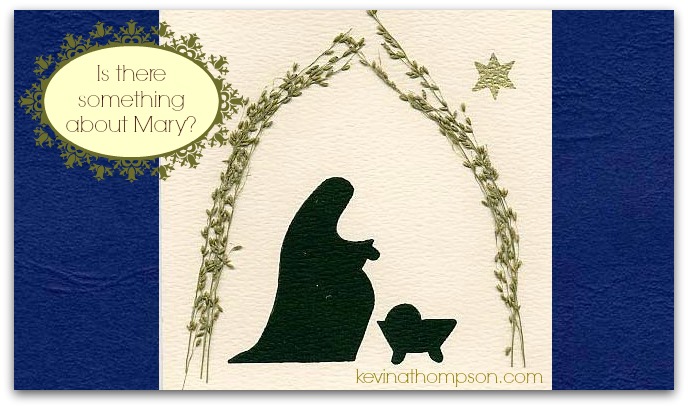It’s conceivable the most controversial character in the Bible is not Jesus or Paul, but Mary. As much as anyone, she is the dividing point for churches and the source of many controversies through the centuries.
What kind of woman gives birth to the Son of God?
Some would say someone far different than us.
It’s a common-sense answer. God would not use an ordinary human being to accomplish his will. There must be something unique about a woman chosen to give birth to the Son of God. At minimum she must be better than us; at maximum she may be divine.
Yet this common sense answer is built on a false premise—God would never use an ordinary person.
What we think God would never do is the very thing God has always done. He uses ordinary people to accomplish his work. If Mary were divine, it would actually be a highly unusual story in the Biblical record. God’s pattern is not to use the miraculous to accomplish the miraculous, but instead to use the mundane.
The only thing that stands out about Mary is that God chose someone with whom nothing stands out.
Whenever we try to make sense of the Christmas story by assuming Mary is extraordinary, we no longer see her for who she is—a sacred young woman transitioning into womanhood, an insignificant girl in a culture where women had little influence, from an unknown town at a time where geography meant everything.
When we see Mary as divine, we lose one of our main entry points into the Christmas story.
By understanding her ordinary nature, we can deeply identify with what Mary must have felt during this time. We can see her crying out for more explanation, longing for more understanding, pleading for just one more sign. We can see her fighting temptation and asking for forgiveness. We can see her trusting God when her circumstances said she shouldn’t, having faith when few would’ve been faithful.
When we see Mary for who she was, we see ourselves.
We can identify with Mary for she holds within her not some unique divinity, but common humanity. She is not a god to be worshipped, but a window through which we can enter the Christmas story.
What kind of woman can give birth to the Son of God? What kind of person can have a relationship with God? The Christmas story makes it clear—any person that God chooses.
When we assume Mary is unique, we lessen the amazing nature of God and diminish the likelihood of God knowing us. If God only relates with, and works through, those who are unique, what chance do we have of knowing Him or being used by him?
But if God chose to work through a common girl to do his greatest act, what makes us unable to know God or be used by Him?
The same God which chose Mary is still choosing people.
He may not be planting his Son in our womb, but He is planting His Spirit in our hearts.
For those whose eyes have been opened by His grace, Mary is a wonderful model for faith.
She obeyed when many didn’t.
She believed when many doubted.
She worshiped when many rebelled.
Ben Stiller was right, there is something about Mary. But that something is not a uniqueness within her which separates her from the rest of humanity. That specialness is the result of God’s undeserved grace which resulted in her trusting obedience. For that, generations have called her blessed.
If we obey, they will call us the same.



